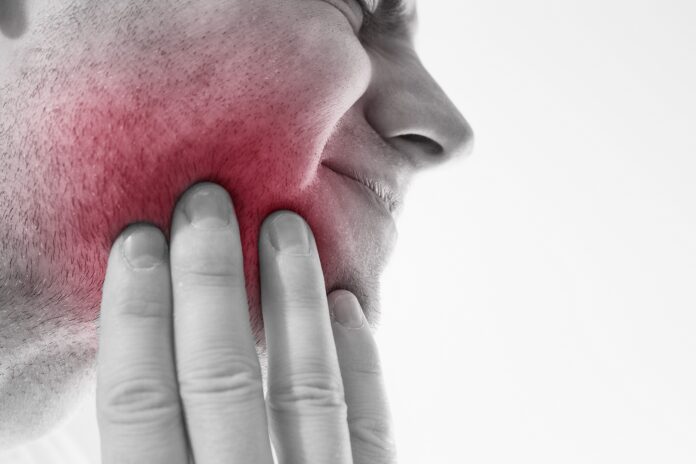Tooth pain is the most common symptom of toothache. Various conditions, such as decay, abscess, fracture, or gum disease, can cause tooth pain.
The exact cause of tooth pain is often unknown, but a dentist may tell you what is causing your toothache and provide treatment options.
Tooth pain may also be a symptom of other problems, such as TMJ disorder (jaw joint dysfunction). If you are experiencing tooth pain, you should see your dentist for evaluation and treatment options.
Can Tooth Pain Affect the Ears?

Headache, ear pain, and dizziness are common symptoms of tooth pain. But can one experience tooth pain in ear? While it’s not common, there’s a chance that your jaw is hurting as well.
If you have both an earache and a headache, you probably suffer from temporomandibular joint (TMJ) syndrome. TMJ refers to the mass of muscles and ligaments that connects your jaw to your skull. This can cause general headaches, ear pain, and dizziness simultaneously.
If you think this is happening to you, schedule an appointment with your dentist immediately. They can help diagnose TMJ syndrome and recommend treatment options to ensure you enjoy life while avoiding further pain.
What are the Symptoms of Tooth Pain?
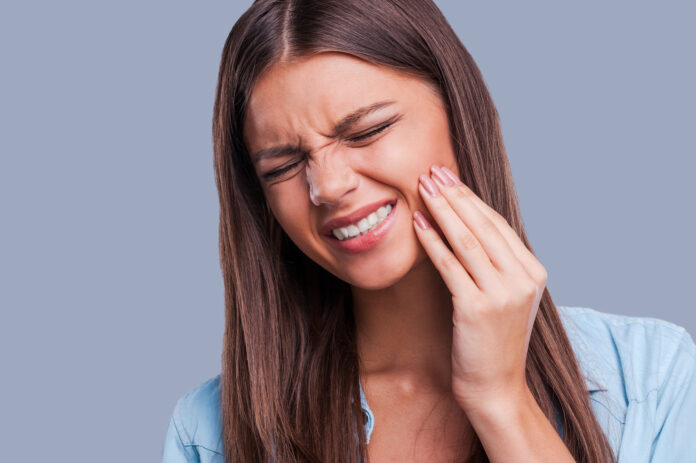
-
Headache
Headaches are usually the first sign of tooth pain. The pain may be intense, but it can also be dull or intermittent, making it hard to pinpoint its exact location. The pain may radiate from the neck or jaw and can worsen when you bite down on something sour or crunchy.
-
Numbness in the cheek or temple area
Numbness in the cheek or temple area is another sign of inflammation around a tooth’s nerve. This is called trigeminal neuralgia, and it’s caused by an excess of blood flow to a nerve caused by inflammation around a nerve root in the skull or face.
The numbness usually comes and goes over time, and some people experience muscle spasms at the site of their pain and tingling sensations in their faces or arms for no apparent reason.
-
Sensitivity to hot and cold temperatures
Sensitivity to hot and cold temperatures is another symptom associated with tooth pain, especially if the affected tooth has been cracked or chipped by accident or fallen.
What are the Leading Causes of Tooth Pain?
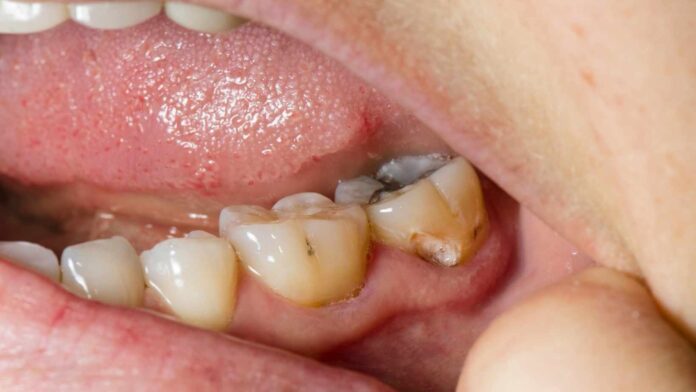
Cavities
Cavities, or tooth decay, is a common dental health problem. Cavities form in the enamel of your teeth, a hard substance that protects the softer inner layer of your teeth. Over time, cavities can develop into gum disease and eventually cause tooth loss.
Cavities can be caused by bacteria that grow in your mouth and food. Bacteria feed on sugar in foods and produce acid when they digest it. This acid dissolves away at the thin outer layer of tooth enamel called the surface enamel.
When this repeatedly happens over time, more of this outer layer is dissolved away until there is no longer any protection for the rest of your tooth structure underneath it.
The bacteria continue to eat away at this weakened area until it collapses inwards, creating an open hole where decay can thrive without being detected by your immune system or x-ray machines.
Gingivitis and Periodontal Disease
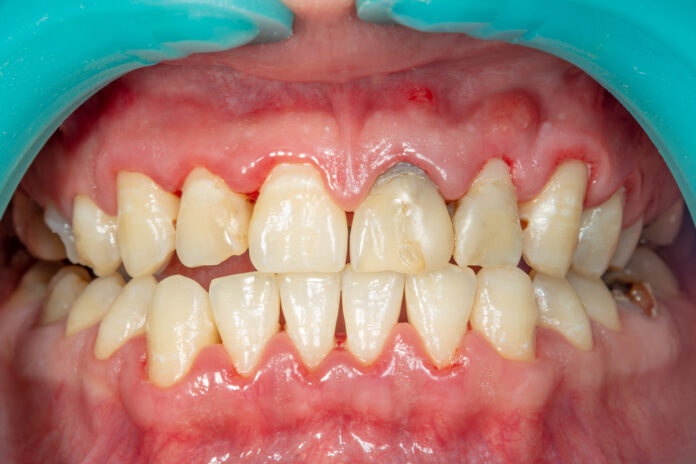
Gingivitis is an early stage of gum disease that affects the gums, tongue, and cheeks. It is characterized by swollen gums and bleeding when you brush your teeth or floss your teeth.
Gingivitis can happen in anyone between the ages of fifteen and sixty-five years old; however, it occurs more frequently in people between the ages of twenty-seven and thirty-four years old.
The same risk factors for other forms of periodontal disease can affect this condition as well: poor oral hygiene, smoking and alcohol consumption, diabetes mellitus, high blood pressure, uncontrolled diabetes mellitus (Type 1), kidney disease, thyroid disorder, and pregnancy (use caution if pregnant).
Tooth abscess
A tooth abscess is an infection in the root of a tooth. It’s usually caused by a bacterial infection but can also be caused by other types of bacteria or even fungi.
A traumatic tooth abscess can occur when there is a break in the tooth’s root, and the bacteria have entered through this wound. This is especially common in children who have had a filling replaced with crowns, bridges, or dentures.
A damaged filling
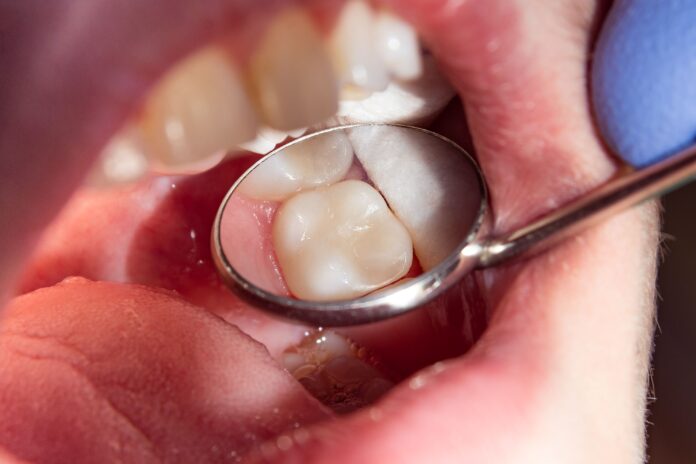
The most common cause of tooth pain is a broken or cracked filling. In this case, the dentist will extract your tooth and replace it with a temporary crown. This procedure is typically done as an in-office procedure that takes about an hour to complete.
You will eat and normally drink afterward. However, you’ll need to return for a follow-up appointment two weeks after the initial treatment to remove your temporary crown and replace it with a permanent restoration.
However, if the damage is extensive, you may need more extensive treatment beyond just a temporary crown, such as root canal therapy (pulpotomy).
Infection
A common cause of toothache is an infection caused by bacteria or fungi. This can be caused by something as simple as chewing on something that has gone bad or eating something that has been stored incorrectly for too long, or it could be something more serious such as a cavity or abscessed tooth.
A dentist can treat this problem by removing the infected area and working with you to prevent further problems in the future.
Teeth grinding
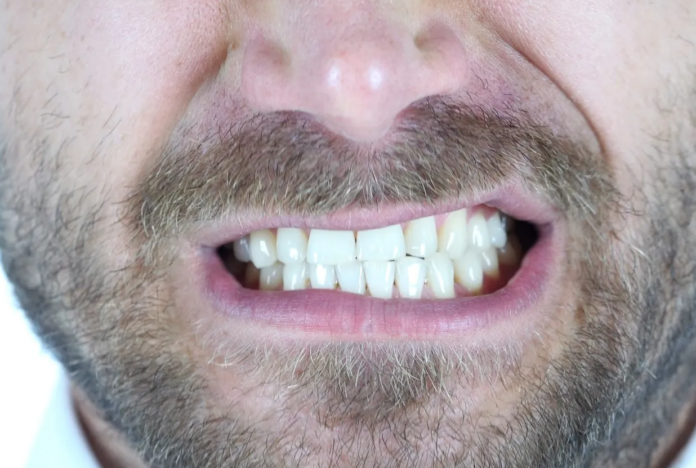
This is another common cause of toothache, especially if an underlying problem with teeth or gums needs attention but hasn’t been appropriately treated before.
In some cases, this may need simple cleaning and polishing of your teeth each day, but in other cases, it could be an emergency situation where you need to visit your dentist immediately.
Repetitive motions
In some cases, the cause of tooth pain can be the result of continuous chewing, such as when you bite your fingernails, eat hard substances, or grind your teeth.
This can cause discomfort, but it’s not usually a serious problem until you start to experience other symptoms related to tooth pain, such as:
- The front fillings in your teeth coming loose
- Broken teeth
- A large cavity that causes a deep hole to develop in one or more of your teeth
Tooth fracture
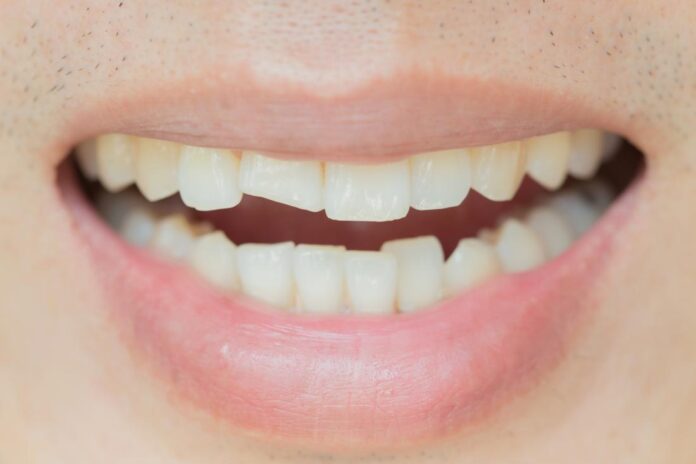
Tooth fracture is the most common cause of tooth pain. When a tooth breaks, it can be painful because the broken part can pierce through the gums and into the jawbone. Some teeth, such as extractions or fillings, may break during a dental procedure.
If you have tooth pain caused by a tooth fracture, contact your dentist immediately for an examination and treatment plan.
Key Takeaway
If you are experiencing tooth pain, it is crucial that you speak to your dentist about an X-ray.
This will give them a chance to check for any underlying problems that are causing the pain. If there are no underlying causes, this will help them determine what treatment options might suit them.

